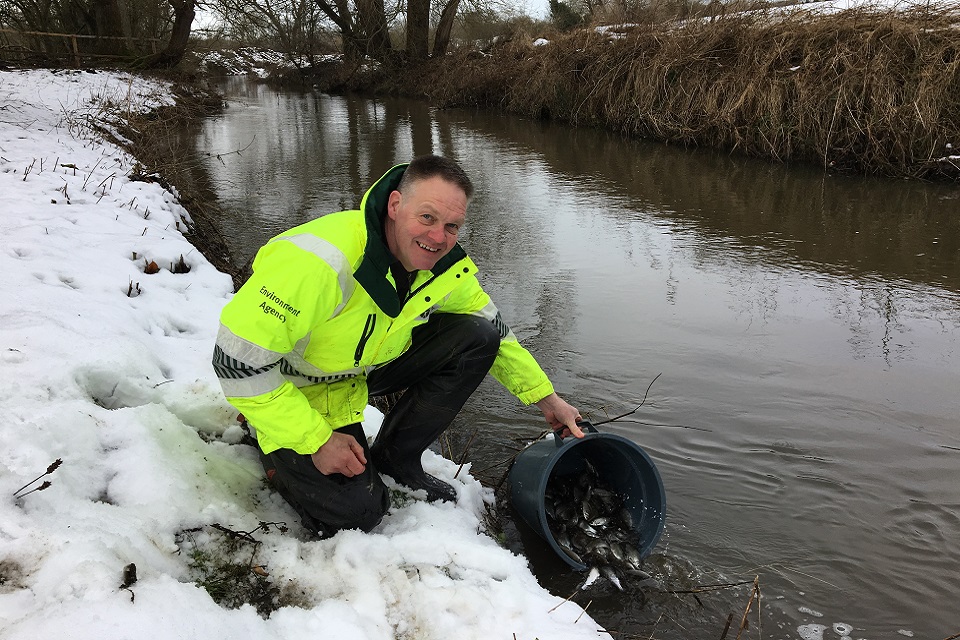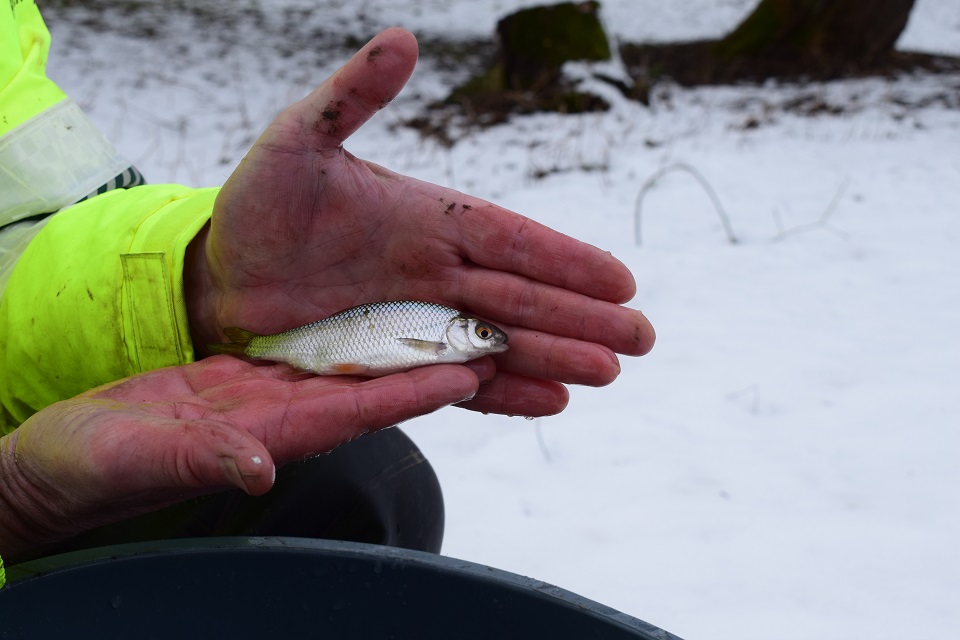Press release: Warrington’s £34 million flood defence scheme officially complete
More than 2,000 Warrington homes and businesses will benefit from the town’s multi-million pound flood defence scheme, officially opened today (26 January) by Environment Agency Chief Executive, Sir James Bevan and the town’s Mayor, Councillor Les Morgan.
The scheme is one of the largest value flood defence projects constructed in the region in recent times, and will significantly reduce flood risk to the town which has been no stranger to flooding – given it sits in naturally low-lying land and within the path of the River Mersey and its tributaries.
The £34 million scheme brings increased flood protection to properties in 9 residential and public areas of Warrington, better protecting the hundreds of families and businesses who have experienced flooding in the past and are aware of the destruction it can bring.
Sir James Bevan, Environment Agency Chief Executive, said:
The scheme not only brings flood risk benefits but the work in the area is also good news for walkers, birdwatchers and wildlife. It’s been great to see the Environment Agency working together in partnership to better protect Warrington – a fine example of what can be achieved by working with others.
These new flood defences will not only benefit hundreds of homes and businesses in the area but will also safeguard critical infrastructure, vital in keeping the town moving.
Due to the scale and complexity of works, the scheme was delivered in 3 phases – parts of which have been effectively operating for some time. Phase one (the Knutsford Road section) was put to the test during the 2013 December high tides, preventing some 200 properties from being flooded. The predicted value of damage to properties that would have otherwise occurred, covered the actual cost of this section of the scheme.
Floods Minister Thérèse Coffey said:
Warrington’s new £34 million flood scheme will reduce the flood risk to over 2,000 homes and businesses, and protect vital infrastructure helping to bring investment to the area.
This scheme is an excellent example of how working together with councils and local businesses allows us to make the most of government funding to secure the best possible defences for communities. By 2021, we will have invested £47 million in flood defences to better protect 4,280 homes in Cheshire.
Comprising 5km of flood walls and 2.2km of embankment, the 7.2km scheme has improved amenity and recreational opportunities, as well as habitat conditions along the river corridor.
The widening and clearing of formerly impassable footpaths has improved connectivity, as well as views of the river and across the town, and extensive tree planting has created many pleasant vantage points for walkers and cyclists.
At the Twiggeries site behind Kingsway North, a 500m section of Padgate Brook has been realigned to create a more natural look and 5 hectares of reed bed habitat has been established to attract wildlife to the area.
The town’s main park, Victoria Park, has seen major improvement works to the main entrance, and a ‘wavy-topped’ railing along the road frontage at Knutsford Road makes a strong urban design statement.
The scheme was designed not only to be functional but to be aesthetically fitting within its environment. Children from local primary schools were challenged to create the winning artworks that adorn the defence walls, from Kingsway North all the way along Knutsford Road.
Funding for the scheme came from a number of sources. The majority – £29m – came from Government Grant-in-Aid, the remaining came from the partners the Environment Agency worked with to deliver the scheme.
The Environment Agency worked closely with Warrington Borough Council, who contributed £4 million towards the scheme, of which £1 million was ‘works in kind’. Scottish Power, who owns and operates a high voltage substation in the Howley area that serves almost half of the town, also contributed £2 million to the scheme to better protect this key piece of Warrington infrastructure.
As well as contributing funding, the Council was a key partner in cementing a strong relationship with stakeholders and landowners within the scheme’s footprint.
Councillor Hans Mundry, Warrington Borough Council’s executive board member for public realm, said:
The work done by the Environment Agency will bring peace of mind to many Warrington people as we work together to protect homes and businesses along the Mersey.
It is more than just functional though, as you will see if you take a walk by the river. It is an attractive addition to the waterfront and has improved the ecology and helped protect wildlife in the area.
You can view aerial drone footage of the Warrington flood defence scheme on YouTube.
Drone footage filmed by Suave Air Photos

